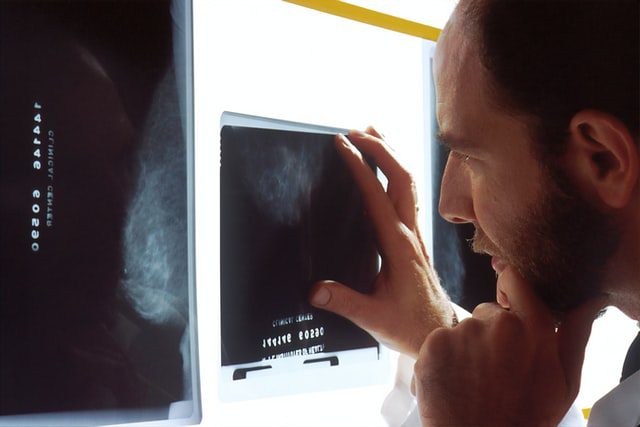
FTM Pap Smear
Transgender men also referred to as female-to-male transgender individuals, are people who were born with female reproductive organs but, in fact, identity as males. Many male transgender patients choose not to undergo complete sex reassignment surgery as part of their transition. They then preserve their natal reproductive organs, which can often be subjected to diseases like cancer.
Therefore, it is essential that transgender men who possess a cervix adhere to the same cervical cancer screening guidelines as non-transgender patients.
Cancer screenings are undoubtedly crucial to reproductive health, but they may lead to dysphoria and patient discomfort for several reasons. Transgender patients may experience internal discord when getting a pap test because their reproductive organs do not align with their gender identity.
Other challenging factors include:
- The desire to ignore the presence of natal reproductive organs.
- The uninformed belief that the cervix is removed during a supracervical hysterectomy.
- A history of trauma.
- Anxiety and stress associated with undergoing genital examinations.
Why Inadequate Pap Tests Are More Prevalent In Transgender Patients
Because transgender men were born with female reproductive organs, pap tests and cervical cancer screening can be especially triggering to their gender dysphoria. Many transgender men eventually decide to undergo complete sex reassignment surgery, but this is not always the case.
Until that happens, they still possess a uterus and a cervix. The presence of these organs makes them susceptible to cervical cancer, and regular diagnostic Pap tests are required.
During a pap test, cells and secretions from the cervix are used to detect and identify cervical cancer or any changes that may be precancerous. Inadequate Pap tests aren’t valid in the screening process because of a lack of cells or due to obscuring blood rendering the test incoherent.
Although transgender men are less likely to have inadequate Pap tests due to obscured blood, they are likely to lack sufficient cells for an adequate test. This prevalence may be caused by the effects of testosterone therapy that aid in muscle growth and penile development in female to male patients. Testosterone therapy leads to the tissue of the cervix and vagina to dry, thin, and shrink, which contributes to the high occurrence of unsatisfactory Pap tests.
Not only are cervical cancer screenings problematic in a physical sense, but they also result in pathological issues because of the disconnect between biological sex and identity. Research suggests that transgender men find it difficult to approach reproductive health with the necessary urgency because they would prefer to deny the existence of female reproductive organs altogether.
It does not elevate their gender affirmation when they have to keep considering the repercussions of cervical pathology. A study showed that most transgender men view gynecologic exams as a time of extreme emotional conflict between how they view themselves versus their physical anatomy. This conflict is only worsened by the physical touch involved in reproductive health exams. [1]
Another contributing factor to the presence of unsatisfactory Paps compared to Pap tests of non-transgender individuals is the lack of insightful knowledge and skills on the physician’s part regarding treating transgender patients.
Researchers at the Fenway Health Institute, an immense healthcare facility that serves the majority of the LGBT community in Boston, analyzed Pap test results from 3625 non-transgender females and 233 female-to-male patients. The results concluded that transgender men are much more likely to yield inadequate Pap test results along with being more prone to have multiple inadequate tests. The results also proved that transgender patients take five times longer to come in to undergo their follow-up tests.
The solution to this problem would be to advocate alternative preventative care such as human papilloma virus DNA testing. This test could even be considered to be a more effective method of screening for cervical cancer in transgender patients.
Many female-to-male transgender individuals prefer to keep their cervix to preserve the inner pelvic architecture and sexual pleasure, but the benefits of choosing this path are few. If a transgender patient chooses to undergo a total hysterectomy, the cervix and the uterus is removed, and there will be no need for a Pap test again.
Gynecological Care For Transgender Men
If you are a trans man who hasn’t undergone genital surgery, you need gynecological care to maintain reproductive health.
To identify your individual healthcare needs, find a doctor with whom you feel comfortable sharing your gender history and concerns. Don’t let stigma or fear keep you from looking after yourself to the best of your abilities. You deserve the same healthcare standard as anyone else.
Once you have found a suitable healthcare professional, be sure to inform them of any hormonal treatment you may be receiving, along with any surgical interventions you may have undergone. Knowing your full history and current anatomy is essential for any doctor to perform appropriate screening for cervical cancer, among other conditions.
You will likely be required to provide a full sexual, psychiatric, obstetric, and gynecologic history along with a family medical history. To optimize your experience with gynecologic exams, ask your doctor about appropriate screening tests recommended for transgender men of your age group.
Breast Tissue health
Both male and female patients have breast tissue. This means that despite having top surgery for trans men to remove breast tissue, you’ll still have residual breast tissue. Although the risk is significantly reduced, breast cancer is still a threat.
How to promote breast tissue health:
- Become familiar with the form and feel of your chest wall or breasts if you underwent top surgery so you would easily notice and identify changes that may be problematic.
- Inform your doctor if your family has a history of breast cancer.
- Request information about cancer screenings, including mammograms and yearly or regular breast exams.
Trans men who chose not to have top surgery to have their breasts removed are required to adhere to cancer screening recommendations set for non-transgender female patients. However, these guidelines may vary, so it is once again crucial to have numerous conversations with your doctor regarding this subject.
A mammogram won’t be possible if you indeed had your breast tissue removed. If this is the case, you may have an ultrasound or an MRI to analyze the health of your breast tissue.
Pelvic Health
If you still possess a cervix, uterus, and ovaries, you might be at risk of developing cancer in these organs. It is important to note that testosterone treatment does not lower the risk of developing these cancers.
Your pelvic health is of great importance, and to maintain this health, your doctor may recommend:
- A pelvic exam
This exam checks for issues concerning the health of the vagina, uterus, ovaries, and cervix. Your doctor will feel inside your vagina during a pelvic exam and evaluate your genitals. They will use a metal-hinged or plastic instrument to make it easier to view your cervix. FTM patients may consider it to be a challenging pelvic examination as it includes a more invasive process, but it is all done for your better health.
- Sexually transmitted infection tests
Anyone can obtain an STI by engaging in oral, vaginal, or anal sex. Some common STIs include gonorrhea, chlamydia, herpes, hepatitis, and chlamydia. The Human Immunodeficiency virus and the human papilloma virus are also sexually transmittable. Most screening for these conditions simply requires a urine or blood sample.
- Pap test
During a Pap test, your physician will use a soft, small brush to collect cervical cells. These cells are then studied under a microscope to screen for any signs of cancer.
It is to the advantage of all natal female patients and FTM patients alike to be well informed concerning how to protect yourself from sexually transmitted infections. Preventative measures include always using a condom and avoiding unprotected sex unless you and are partner are strictly monogamous.
Vaccines such as HPV vaccination will go a long way in protecting you against serious infections with dire consequences. Hepatitis A and Hepatitis B can also be prevented with the administration of vaccinations.
Fertility
Many trans men wish to one day have children of their own. Although this is by no means a social or personal obligation, planning is crucial if this forms part of your long-term goals.
Trans men who still possess their ovaries and a uterus can get pregnant by having intercourse with another man. This is a viable possibility regardless of hormonal therapy and menstrual regularities. It is worth noting that testosterone therapy greatly decreases your chances of being fertilized, but pregnancy remains a real possibility up until the onset of menopause.
FTM patients who can but do not wish to be impregnated can make use of preventative aids like birth control pills, condoms, or a Mirena, among other methods.
If you are receiving masculinizing hormones, it may not be wise to commence birth control that includes the administration of estrogen. This will minimize the effects of gender-affirming hormone therapy.
If, at some point, you desire to bear a child, consult your doctor about the best course of action. You will not be able to continue testosterone treatment if this is the case. Modern medicine and technology have made it possible to prepare for a possible future pregnancy by collecting and freezing unfertilized eggs and ovarian tissue. These services are typically available at fertility clinics. However, such procedures are quite expensive, so if you are considering having children, it would be more cost-effective to proceed with this plan before starting hormone therapy or completing sex reassignment surgery.
Testosterone Treatment
Testosterone hormone therapy has some unexpected repercussions that need to be considered before committing to treatment. For example, sexual arousal will be much more frequent and prominent. The clitoris will enlarge, and your vaginal walls will thin. If you are on the receiving end of receptive sex, you may experience pain and bleeding. These unwanted effects can be countered by using a water-based lubricant during intercourse. Your doctor may also prescribe a topical cream to relieve symptoms of pain.

Tips For Trans Men Attending A Reproductive Health Examination Appointment
Trans men are equally at risk of developing the same reproductive complications as any non-transgender person. Still, reproductive health exams are evidently more embarrassing, uncomfortable, and invasive, not to mention being harmful to gender dysphoria.
Here are some helpful tips to keep in mind before going for an exam:
- Don’t overthink the process.
- Bring a trusted family member or friend along for support.
- Confirm that your medical provider has experience in treating trans men.
- Don’t be afraid to voice your concerns and fears.
It may be a real challenge to find a working strategy on how to approach upcoming exams, but whatever you do, do not neglect this responsibility. The upkeep of your reproductive health is absolutely crucial to your overall wellbeing and joy.
Closing Remarks
The medical sector is gradually becoming more accommodating and understanding of the unique challenges that trans men face regarding their reproductive health. Although it may be confusing and sometimes even harmful to acknowledge female genitalia, screening, and general examinations could truly save your life. You are brave and strong, and you can conquer any feelings of dysphoria that these exams may awaken. Essentially, the most important thing is that you are healthy, happy, and reassured of your overall wellbeing.
Sources:
[1] https://pubmed.ncbi.nlm.nih.gov/18586186/



